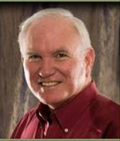What Do I Do if I Suspect My Pastor is an Alcoholic?
- Dr. Roger Barrier Preach It, Teach It
- Updated Sep 26, 2014

Editor's Note: Pastor Roger Barrier's "Ask Roger" column regularly appears at Preach It, Teach It. Every week at Crosswalk, Dr. Barrier puts nearly 40 years of experience in the pastorate to work answering questions of doctrine or practice for laypeople, or giving advice on church leadership issues. Email him your questions at roger@preachitteachit.org.
Dear Roger,
Our pastor was arrested for DUI recently. This is not his first offense. He is believed to have the alcoholism disease. As a church body, what is our responsibility, what should be his consequences, and how can we do this in love knowing that prior DUIs have been swept under the rug? Our pastor has not been forthright with any of the charges, ever.
Sincerely, KG
Dear KG,
Joe handled it best. We were close friends in the ministry. Our churches were about the same size with the same needs and resources. We met once a week for lunch. The fellowship was sweet. The encouragement was deeply appreciated. Our friendship ran deep.
Then, surprise! Surprise! Suddenly, he was telling me that he was an alcoholic. I had no idea. He reached in his pocket, pulled out his six-month sober coin, and began to tell me his story.
“I'm stepping down as pastor this Sunday. We have endured a lot together and I didn't want you to hear it from someone else,” he explained.
I was stunned. He sure fooled me. I asked him, "What are you going to do after you resign?"
"I didn't want the church to live through months of pain so I decided to make it quick and simple. I am leaving in two weeks to become pastor of a small church in the Pacific Northwest. Staying sober is one of my top priorities. So, I go to AA meetings twice a week. I don't want the risk of a large church's pressure pulling me off the wagon.”
KG, let me express the sadness in my heart for your pastor, his family and the church. All three groups will need your attention.
Alcoholism usually ends in tragedy not only for the alcoholic but for everyone around them. The devastation spreads like the ripples of a stone tossed into a pond. I understand both your pain and your concern for his wellbeing. You would do most anything to help him get help, wouldn’t you? Of course you would.
Alcoholism is a disease, as you mention. It is also an addiction and a sin (1 Timothy 3:3). Paul wrote in 1 Timothy Three that elders are to be "temperate, self controlled, and not given to drunkenness." The obvious conclusion is that alcoholics are disqualified to serve as pastors. In other words, your pastor must surrender his position until he is able to receive treatment and conquer his addiction and demonstrate sobriety for at least a year or more. It is my opinion that you do not have to wait several years for him to "recover." Staying sober and constantly dealing with the pressures of a church will most likely be more than he can handle.
Alcoholics Anonymous recommends an "intervention" where loved ones make the alcoholic face his/her problem in the hopes that he/she will get some help.
It is the responsibility of the church leaders, both and men and women, to have an "intervention" with your pastor. You have already tried a couple with heart-breaking results. This approach follows Jesus teaching on how to handle sin in the church (Matthew 18:15-20). Jesus said that those who fail to confess their sin are to be thrown out of the church. Those who acquiesce are to be reconciled with the church and restored to the Christian life.
Unfortunately, your pastor has been confronted with his alcoholism and refused to repent. The consequences for his sin is that he can no longer be a pastor. However, if he has a change of heart your church can begin the process of restoration.
This is called "church discipline." The goal here is not punishment. It is restoration. The church is to help him and his family to pick up the pieces and start over again (John 8:1-12)
Paul wrote that a pastor's sin is never to be "swept under the rug." The congregation must know that elders can't sin and get away with it while others in the congregation cannot.
Read 1 Timothy 5:19-20 carefully:
"Do not entertain an accusation against an elder unless it is brought by two or three witnesses. But those elders who are sinning you are to reprove before everyone, so that the others may take warning."
Following this injunction in American culture is tricky. Privacy laws must be navigated carefully. Otherwise, the church may leave itself open to law suits. In my experience, most dismissed, sinning pastors don't leave quietly.
Can you imagine how many times that I've had to dismiss a sinning pastor or elder? Too many! The first pastor we had to dismiss had committed adultery with a brand-new Christian. I handled the situation with input from the elders, Biblical principles, and much prayer. A model was forged that I have used continually throughout the past forty years. Here’s what it looks like.
Several elders and I confront the sinning minister and tell him/her the accusation and ask them whether or not it is true. He/she have the opportunity to tell the truth. Witnesses have made the truth already clear to us. If they confess and repent, then we tell them that they have still forfeited their job and that they are no longer a pastor at our church. The trust factor is broken. However, we stand ready to help them take care of family needs and work out with them a plan of restoration. If they refuse, we let them know that their job is forfeited and we can't help them. It is time to clean out their desks.
I have never once had a pastor try to deny what we all know is true. The main reason is because of their families. They need all the help they can get to navigate such troubled waters--especially financially. If they lie and deny then we can't help them with a transition time (restoration plan).
With the others, we work out a restoration plan that gives them the opportunity to utilize the church's care and resources. This restoration plan will include financial help, counseling and other resources as needed.
The congregation is told as soon as possible that this pastor has lost his/her job. Rumors can run wild so I preculde them by saying: "Bill has engaged in a behavior that has broken his trust with us and he has forfeited and compromised his ability to be minister here. We are working out a transitional plan to help them get back on their feet. Now, some of you will be tempted to gossip and try to guess what he has done. Please don't! He has not done anything that many of you haven't done yourselves.
By the way, I always get permission from the sinning pastor to make this revelation to the entire congregation. Not only does my speech deal with privacy laws, it sets in motion the restoration plan.
Again, I am disheartened by your situation. I will remember you in my prayers for all to go well.
Love, Roger

Publication date:




















